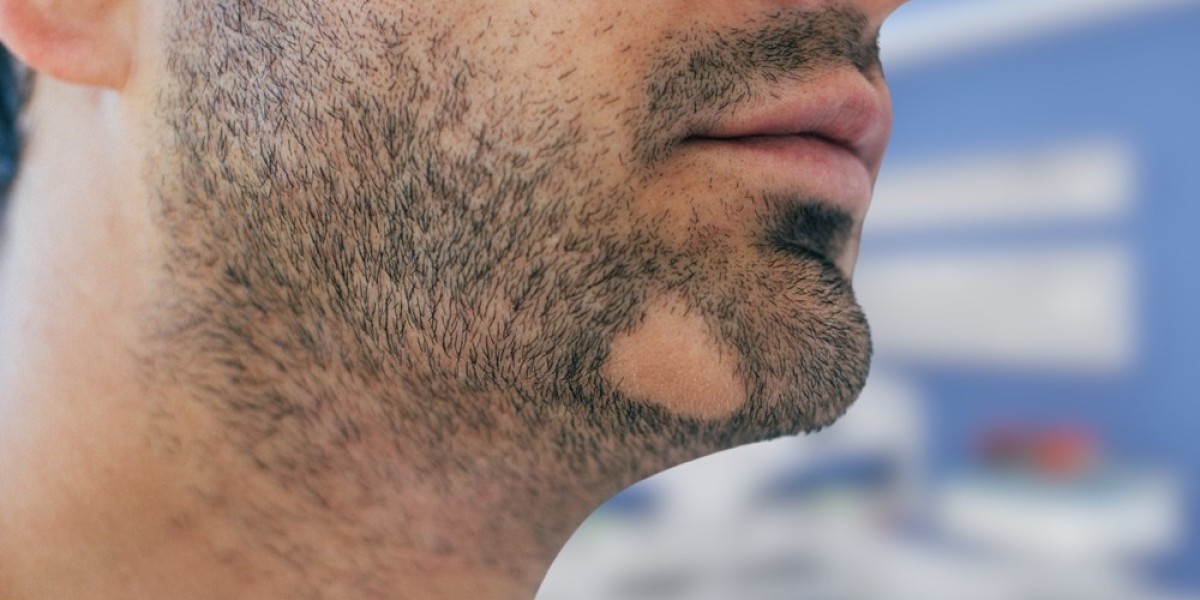Alopecia Areata is a hair issue that causes hair to fall out in small patches that are often unnoticeable. For many, it starts as just a few bald spots. However, with time it can progress to more significant hair loss, affecting the scalp, face, and even body.
There are strategies to control the progression of hair loss. Furthermore, there are alopecia areata clinical trials ongoing to find a better and a potent cure. Your participation can help find a better therapy and contribute to the overall research.
What is Alopecia Areata?
Alopecia areata is an autoimmune disorder where the body's immune system attacks healthy follicles leading to hair loss. Like any other autoimmune disease, the exact reason for this condition is unknown. Why do the immune cells attack normal cells and can't differentiate them from antigens? Although the causes are not known, genetics and environmental factors play a major role in initiating this condition.
The condition often begins suddenly, with small, round, or oval patches of hair loss on the scalp. These patches may gradually expand, and in some cases, lead to more severe forms such as:
- Alopecia areata patchy: The most common form, characterized by small bald spots.
- Alopecia totalis: Complete loss of scalp hair.
- Alopecia universalis: Loss of all body hair.
It’s important to identify early symptoms, such as tingling or itching in affected areas, as quick action can help prevent further progression. Though there is no cure for alopecia areata, treatments can help manage the condition and encourage hair regrowth.
Can Alopecia Be Stopped from Spreading?
This question might pop up in your mind as if alopecia can be stopped. Since the condition is autoimmune and the cure for such conditions is unknown, nothing can be said. The condition can be managed and flare-ups can be minimized.
Various treatments can slow the spread of alopecia areata, though they may not work for everyone. Some treatments are more effective in the early stages, while others may require long-term use to see significant results. In any case, early intervention is key to slowing the progression.
Medical Treatments to Slow Progression
There are medical treatments available to manage the condition and stop it from spreading. Consulting with a dermatologist is necessary to determine the right treatment plan for your condition. Here are some options:
Corticosteroid injections
Corticosteroids are one of the most common treatments for alopecia areata. Administered through injections directly into the affected areas, these drugs help reduce inflammation around the hair follicles. The treatment targets the autoimmune response, suppressing the attack on the follicles and allowing hair to regrow. Injections are usually given every four to six weeks, and many patients notice regrowth after a few months.
Topical Immunotherapy
Topical immunotherapy is another common treatment used to slow down alopecia areata. This involves applying chemicals like diphencyprone (DPCP) to the scalp, which triggers an allergic reaction that stimulates the immune system. While the process may seem counterintuitive, the local immune response can redirect the body’s attention away from attacking hair follicles, encouraging hair to regrow. This treatment often requires regular applications and can take several months before significant results are seen.
Minoxidil (Rogaine)
Minoxidil is a topical treatment often used for male and female pattern baldness, but it can also help those with alopecia areata. It works by widening the blood vessels around the follicles, which improves hair growth and prolongs the growth phase of the hair cycle. Minoxidil is available over-the-counter and is applied directly to the scalp, but it’s important to note that it’s not always effective for all patients with alopecia areata.
Oral Immunosuppressants
For more severe cases of alopecia areata, dermatologists may prescribe oral immunosuppressants such as methotrexate or cyclosporine. These medications work by suppressing the immune system’s attack on hair follicles, slowing or halting hair loss. However, because they affect the immune system, these medications can have significant side effects and are typically reserved for those with extensive hair loss.
How a Dermatologist Diagnoses Alopecia Areata
In addition to medical treatments, lifestyle changes can help prevent alopecia areata from spreading. Managing stress, eating a nutrient-rich diet, and adopting gentle hair care practices can all contribute to slowing the progression of hair loss.
Stress Reduction Techniques
Stress is believed to play a significant role in triggering or worsening autoimmune disorders like alopecia areata. Incorporating stress-reducing techniques into your daily routine can help minimize flare-ups. Practices such as meditation, yoga, and deep breathing exercises can help you relax and manage your stress levels. Regular exercise also helps reduce stress, while promoting overall health and wellbeing.
Healthy Diet
Maintaining a balanced diet rich in essential nutrients is important for hair health and may help slow the spread of alopecia areata. Eating foods that are high in vitamins and minerals, such as iron, zinc, and biotin, can help support hair growth. Omega-3 fatty acids, found in fish like salmon and walnuts, have anti-inflammatory properties that may be beneficial as well. A diet that includes a variety of fruits, vegetables, lean proteins, and whole grains is recommended.
Supplements
Many people with alopecia areata turn to supplements to ensure they’re getting the nutrients they need for hair growth. Biotin, a B-vitamin known for its role in hair and skin health, is a popular choice. Other supplements include zinc, vitamin D, and iron. However, it’s important to consult with a healthcare provider before starting any supplement regimen to ensure it’s safe and appropriate for your condition.
Gentle Hair Care
Using harsh chemicals, heat styling tools, and tight hairstyles can weaken the hair and exacerbate hair loss. Adopting gentle hair care practices can help protect the hair you still have. Opt for sulfate-free shampoos, avoid heat styling as much as possible, and keep hairstyles loose to minimize tension on the scalp.
Alternative Treatments and Natural Remedies
Some people with alopecia areata explore alternative treatments and natural remedies to manage the condition. While scientific evidence supporting these methods is limited, many patients report positive experiences.
Essential Oils
Essential oils such as rosemary, peppermint, and lavender are often used for promoting hair growth. These oils may help stimulate hair follicles and improve scalp circulation. They can be applied to the scalp by mixing a few drops with a carrier oil, such as coconut or jojoba oil.
Acupuncture
Acupuncture is a traditional Chinese medicine practice that involves inserting thin needles into specific points on the body to improve circulation and balance energy. Some studies suggest that acupuncture may help reduce hair loss by improving blood flow to the scalp and reducing stress levels, although more research is needed.
Read Also: Benefits of Non-Segmental Vitiligo Paid Clinical Trials
Conclusion
To conclude, alopecia is an autoimmune condition. However, it can be managed through medications and some alternatives. Some paid research studies in Indiana are hedding to find a potent treatment. Join now and help make alopecia a rare disease on the planet.










